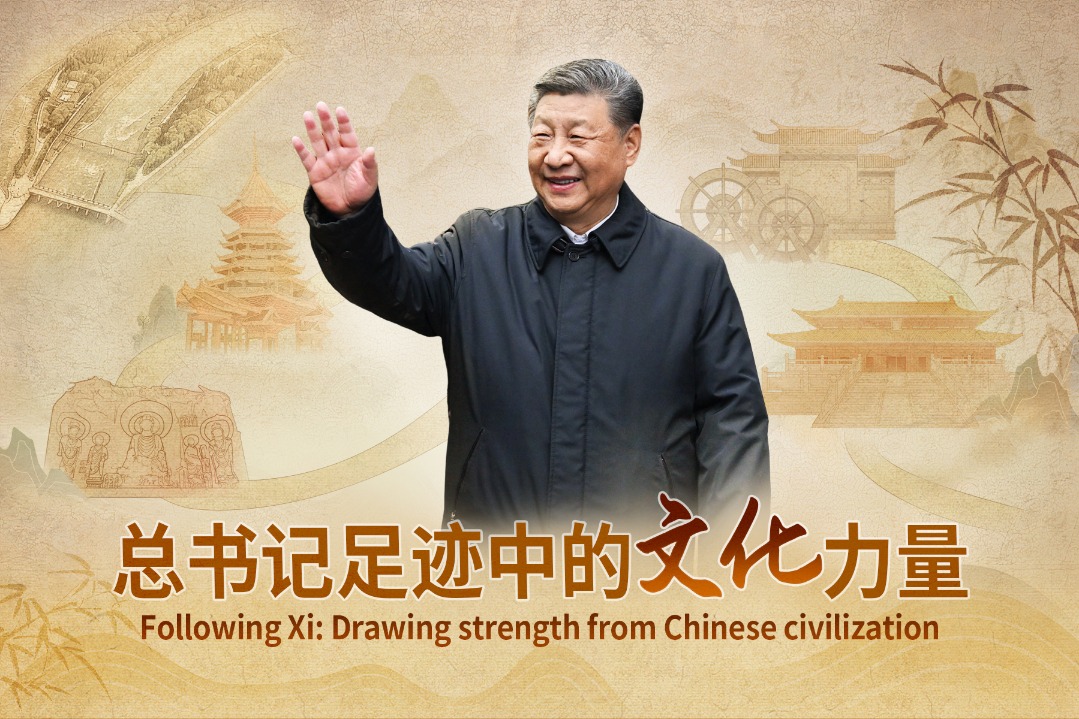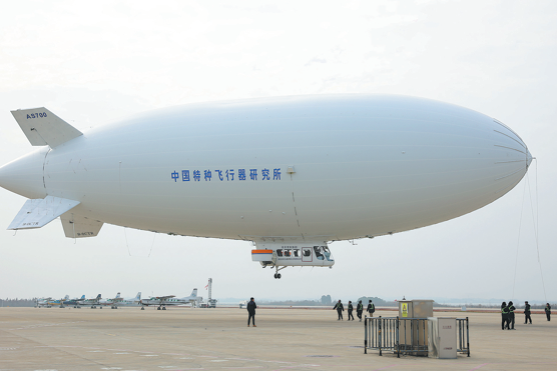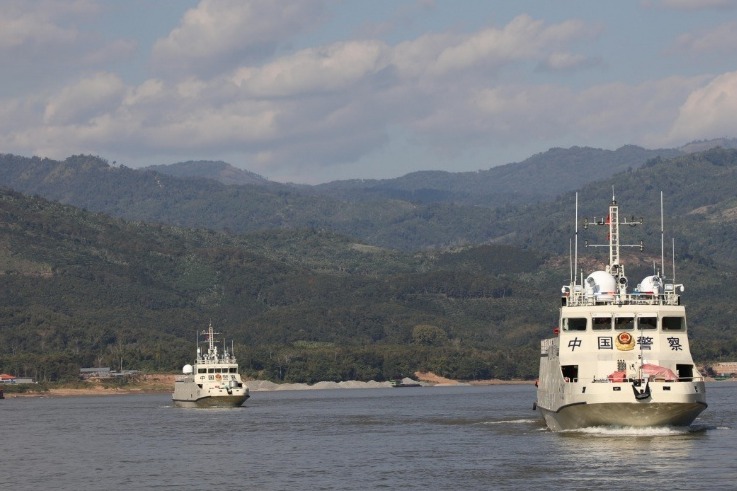A journey worth its weight

| Pascal Lamy, director-general of the WTO, says China's entry into the WTO has transformed the country and the rest of the world. Fu Jing / China Daily |
Pascal Lamy has had an upclose view of China's WTO role
Perhaps Pascal Lamy is better qualified than anyone else when it comes to commenting on China and its role in the World Trade Organization over the past 10 years.
For most of the past year, Lamy, the organization's director-general, has been trumpeting the China WTO success story. It began at the World Economic Forum in Davos, Switzerland, in late January and will continue into the celebration in Beijing on Dec 10 organized by China - and no doubt beyond.
"It is a story of success (that) still unfolds," Lamy said in an exclusive interview with China Daily shortly before leaving for Beijing to participate in the Saturday celebration.
"It has transformed China and the rest of the world," Lamy said in his office in Geneva.
He gave a quick rundown of the milestones since 2001, the year of China's accession to the organization, after painstaking negotiations that involved compromises and risks.
China surpassed Japan, becoming the world's second-biggest economy last year and it has become the world's biggest exporter and second-biggest importer. And China's trade and investment have helped create millions of jobs in the rest of the world over the past 10 years. Built upon the success, the trade deficit will be kept stable in the coming five years, and China's imports will surpass $10 trillion (7.46 trillion euros).
Lamy became director-general in 2005 after leaving his job at the European Commission. He was appointed to a second four-year term as WTO head in 2009.
China's entry, he said, had brought changes either as part of reform in the country or the penetration of Chinese trade into other countries. Some would be happy with that and others would not, he said. "These are (the) normal consequences (of) trade opening."
What matters most, he said, is that when China entered the organization it wanted to continue to pursue reform and to widen the country's opening to the world.
China had paid a price for that, he said, but it had improved the rule of law, efficiency, transparency and market access. "Of course, this meant a string of reforms in China after its entry."
China continued on the reform path not because of its joining the WTO, he said. Rather, it joined the WTO because it needed reform and further opening up.
The decision about reforms at that time in China was taken by the country's leadership and as a consequence of China joining the WTO to benefit from what the organization brings to its members, which is implementing rules-based policies against protectionism.
"If we look at what has happened since (China's accession), that has happened as a result of China's growth in exports," Lamy said. "It has also resulted in China's increasing imports, which has benefited the rest of the world."
The average annual growth of China's imports in the 10 years has been about 20 percent, Lamy said. "It is a success story for China and also a success story for the rest of the world."
Lamy then asks rhetorically, "Now, did this happen without turbulence?" and gave a firm "No".
But no process of rapid economic growth and social reform happens without turmoil, he said. The changes had brought about upheavals that needed to be managed both in and outside China, with the political difficulties that entailed.
"So it has resulted in difficulties which have to be coped with through proper policy changes. This is what happened in China, and this is what happened in the rest of the world."
Despite upheavals, Lamy said, China had acted responsibly as a WTO member.
Over the past decade China has put great effort into reforming its public sector, the financial system and the legal system.
China had implemented its commitment through reforms to match and even surpass WTO rules on market access, intellectual property, anti-dumping and other trade practices.
China had made a contribution to the system as it opened its economy, improving the stability, predictability, transparency of a number of rules that favor trade and economic activities, enhance employment and growth.
"That is where we started. We are in the business of growing the pie through efficiency improvement, which economic growth is about. Economic growth is a sum of improvement of efficiency. So this has worked. Of course, not at no cost. Not without any problem. This is because this system needs to be adjusted through reform either within China or in the other parts of the world."
Whether the change is rapid enough is another matter, he said.
There are different views on this. Overall, China is just as willing as anyone in the WTO to abide by rules on trade and business, Lamy said.
China is a peculiar case, he said, because of the size of its economy and the speed of its growth, unprecedented in human history. That is what distinguishes China from other emerging economies such as those of India, Indonesia and Brazil, he said.
In 20 years China would account for 20 percent of the world's economy, while India would account for 5 percent.
He realized that China does not want to be singled out. However, "if you have big muscles and big speed, that will bring real changes".
As for China's market economy status, he said for the WTO whether it is a market economy only counts when calculating the price of dumping. And in the case of China, when it joined the WTO 10 years ago other members said China would not be given market economy status for the anti-dumping margin calculation until 2016.
"This is part of the terms of accession ... "
On the reform of China's State-owned enterprises, he said: "When China joined, it had to reform in order to move to a modern market-based system, and this process is still ongoing."
Despite generally positive comments on China's entry into the WTO, Lamy is pessimistic about the economic outlook. The unfolding global economic crisis will be "less violent but unfortunately durable" compared with that of 2008-09 because global leadership lacked the capacity to deal with it.
He also forecast that global trade growth next year would be less than that of this year.
Lamy said the outlook for the global economy had worsened considerably in recent months, and risks and uncertainties were increasing, especially as the European sovereign debt crisis worsened, after encouraging signals of recovery late last year.
Sovereign credit and bonds have been downgraded in Hungary, Portugal and Belgium recently as things have gone from bad to worse in Greece and Italy.
The US, Europe and Japan, which contribute to 50 percent of global output, face the task of reducing debt without slowing down their economies too much.
"I think global growth will be moving downside. And compared with six months ago, the world economic outlook has been deteriorating."
The outlook for global growth is decisive in determining the volume of global trade volume, and he is concerned about the trend. "My expectation is that trade growth (globally next year) will be less than this year."
For Lamy, the world has gone through two crises, one economic, the other of management. "We have a global crisis, which impacts the global economic system. We also have a crisis in managing this global crisis. If you have both, it is worse ... Frankly, things do not look good. There is a second wave of crisis ... and the capacity of global leaders to address the problem is weak."































